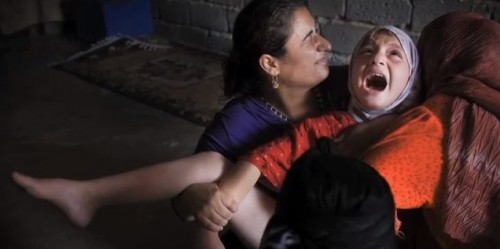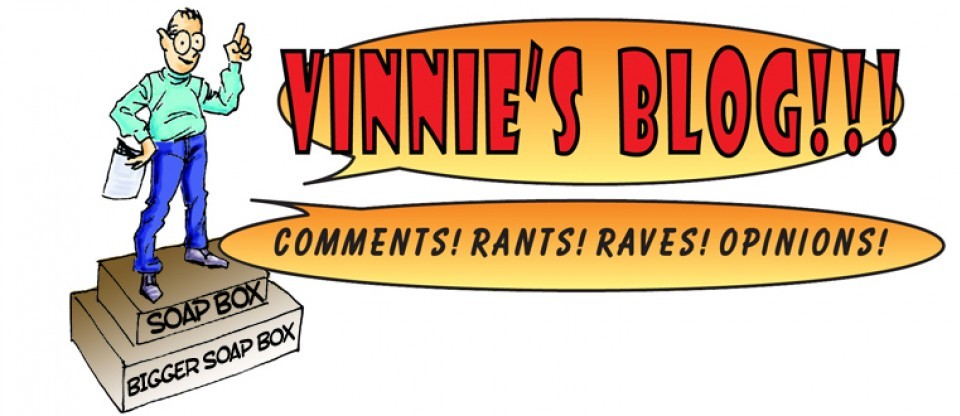According to Amnesty International, one should avoid calling FGM “barbaric.” WHAT!!!!
Here is an informative article by Abigail Esman from last year that I am finally getting around to post.
Recently, I penned an article about an Amnesty International initiative: an art project for which the organization had commissioned artists and designers to address the devastating problem of female genital mutilation, or FGM – using 8,000 paper rose petals. The petals had been gathered as part of a petition action to bring attention to – and to end – the practice of FGM, and were each signed by a member of the public who participated in the petition. It was a laudable project, and I said so.
Amnesty responded with great appreciation for my story – but took exception to one detail. I had called FGM “barbaric,” and, said an Amnesty official, “we try not to use this word.” In an e-mail, she explained, “The use of the word ‘barbaric’ suggests that the people who do this are less than human, which isn’t so because they are being led by social pressure which is what needs to be fought. So we avoid using this word to not judge the people.”
Overlooking the fact that “barbaric,” which means simply “uncultured,” “uncivilized,” or “uneducated,” does not quite suggest “less than human,” I could not help but wonder about the “not to judge them” part. After all, if you set out to change a thing – a behavior, a place, a custom (and especially if you set out to end it) – haven’t you already implicitly expressed a judgment? And how is calling a custom, a practice, “barbaric,” conferring a judgment on the people who perform it?

This is the question that occurred to me soon after this exchange as I read about a similar situation in Canada, where, once again, the term “barbaric,” used to describe FGM – as well as honor killings – came under fire. According to a report in Front Page, “Jinny Sims, the immigration critic of the opposition New Democratic Party of Canada, suggested the word ‘barbaric’ might ‘stigmatize some cultures.’”
Now, perhaps it’s just me, but I can’t think of many things more undemocratic than censorship of language; but that, apparently, is precisely what the Canadian “New Democratic Party” seeks.
Hearing of Ms. Sims’ remarks, I was reminded of the words of another, wiser politician: former British Home Secretary Michael Howard, who, in defense of artistic freedom, once remarked, “We are uniquely fortunate in these islands to have the English language. It is no accident that we have had and do have such a profusion of brilliant poets, playwrights, novelist and songwriters.
We must never allow the richness of that language to be diluted by bending the knee to the tyranny of political correctness.” [Emphasis added, A.E.]
What wonderful words.
Yet that is precisely what we keep finding these days: the sacrifice of language on the altar of political correctness. And it isn’t just about “barbaric.” Remember the uproar over the word “savage” to describe Palestinian suicide bombers? Officially, one is no longer to call those who commit terrorist acts in the name of Islam “Islamic terrorists,” either, though those who commit such acts in the name of Left-wing political extremism are still called “Left-wing terrorists,” and there are “Basque terrorists” and “Green terrorists” and “Right wing terrorists,” all of them named for what they are.
Only in the case of “Islamic terrorism” do we censor ourselves, pretend there is no such thing, lest anyone be offended. And so we pretend that certain customs, which happen to be prevalent in Islamic cultures (even if not exclusive to Islamic cultures) are not barbaric. Even when they are.
But okay, suppose we indulge the censors. What word would Amnesty International or the New Canadian Democrats or any of the others prefer in place of the term “barbaric”? How else would they have us describe the mothers and fathers who murder their daughters in so-called “honor killings,” or the practice of FGM, in which a woman’s (or girl’s) labia may be sliced off, or cut and repositioned to form a seal over the vagina?
If, say, a Park Avenue Protestant family carried out FGM on their daughter, that, too, after all, would be barbaric. And anyone would be right to say so. But barring the use of that word, should we use another one, like “different?” But wait – isn’t “different” somewhat alienating, as well? Does it not imply a judgment?
And so on. At this rate, the only workably acceptable term would seem to be “normal” or “okay.”
And it is not.
These are the times I worry that we stand upon a precipice, and fear for the ideas and the ideals that form the fundament of civilization and democracy. We censor words and language, as Howard says, bending our knee to the tyranny of political correctness, concerning ourselves more with the sensitivities of the perpetrators than the lives and safety of the victims.
It was another British Home Secretary, Mike O’Brien, who famously said in 1999, “multicultural sensitivity is no excuse for moral blindness.” They are words we would still do well to heed.
Abigail R. Esman, an award-winning writer based in New York and the Netherlands, is the author, most recently, of Radical State: How Jihad Is Winning Over Democracy in the West
